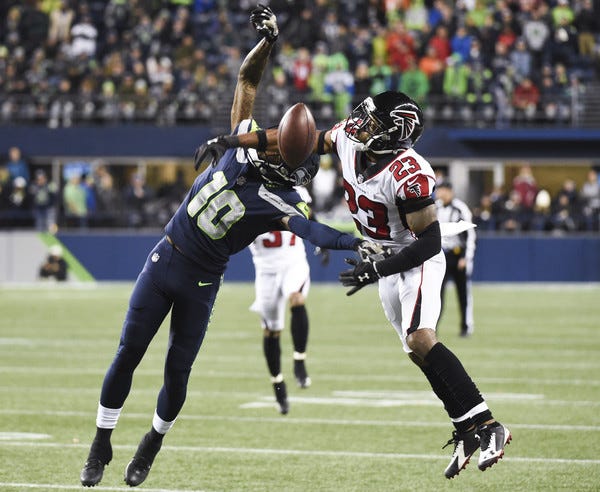Ready Individual One: The quizzical power of a lame duck.

Two years into his presidency, Donald Trump just became a lame duck. His team lost the House and hundreds of state seats in the midterms. New governors and state attorneys general stand ready to file suit after suit against him. His own Justice Department called him a committer and commissioner of felonies in the sentencing of his fixer, who is going to jail for three years for acting in a case Trump won. And on Tuesday, Nancy Pelosi laser-beamed Trump into vapor.
With the exception of fucking up the judiciary beyond repair, his next two years will feature only investigations, hearings, and perhaps impeachment. He may think he’s running for reelection in 2020, but really he’s just debating whether to resign and get an unmerited pardon while he has a complicit successor in the Vice President. Though he may thrash and moan and maybe nuke someone, this duck is cooked. Democrats (and even some Republicans) are salivating over running against “my opponent, Individual-1.”
Meanwhile, over on Sore Loser Boulevard, the Republican legislatures in Michigan and Wisconsin are passing dead-of-night laws designed to strip those new governors and attorneys general of their rightful powers. This follows the model of the GOP coup in North Carolina in 2016, when the voters chose a Democratic governor. The GOP can’t win at the ballot box, but they’ll be damned if they’re going to give up their guns at the state capitol.
Trump should pay attention. By realizing they can’t win, the legislators in those states have figured out something very important in American politics: losing makes you temporarily very, very powerful. Deciding not to run in 2020 will bring Trump almost limitless power. He’s probably too thick-noggined to realize this, and that’s good for us normal humans, but there’s a blueprint in front of him that’s morally bankrupt, questionably legal, and effective as hell.
In game design, we don’t like situations where a player can play without fear of consequences. Consequences are the foundations of rules. By necessity, if you have no concerns about being penalized, you are willing to be penalized. This isn’t gambling for resurrection; it’s instead a willful lack of concern that any rules in the manual apply to you at that given moment.
Consider, for example, the football penalty of defensive pass interference. In the NFL, when a downfield defender hinders a receiver from catching the ball, the referee whistles the play dead, moves the ball from the line of scrimmage to wherever the foul occurred, and awards the offense a first down. This can be disastrous for the defense, because the line of scrimmage might be the 50-yard line. If the penalty occurs on the 1-yard line, that’s a 49-yard pickup, even if the receiver wouldn’t otherwise have caught the ball.

There’s an exception to the rule that the ref will spot the ball wherever the foul occurs, and that’s if it’s in the end zone. At that point, the offense gets the first down on the 1-yard line. Big deal, right? Four downs to get one yard? NFL offenses would scoff at the suggestion that they couldn’t punch it in.
Ah, but wait. The alternative, thinks the defender, is that the offense scores a touchdown immediately. A chance that the offense won’t score is better than a certainty that the offense will score. If that opportunity is on the last play of the game, the offense will get only one extra play from the 1, not four. One chance to notch a yard is anything but certain. So the defender is incentivized to commit such a foul at the end of the game. If he doesn’t, he’ll get beat on the play, which guarantees highlights of him being beat played on repeat on SportsCenter all night.
In college football, it’s even worse. The NCAA mandates that the defensive pass interference penalty is 15 yards regardless of where it occurs. So on first (and even second) down any time in the game, it’s to the defender’s advantage to interfere when the ball is otherwise assured of a catch far downfield. Take the penalty and lose 15 yards rather than 50.
In both cases, the defender is only incentivized to cheat if he is certain he has already lost. If the receiver is not going to catch the ball, the defender would be wise to pull up and let it fall to the ground. But if the receiver is sure to catch it otherwise, the defender should manhandle him all he wants. This is dangerous, because it can result in injury to the receiver. But it can’t result in a worse game result than letting the long gain or touchdown happen. (If you just read all that outside the US and had no idea what I was talking about, consider Luis Suarez’s handball against Ghana in the 2010 World Cup.)
If you’ve already lost, you have no need to play as if you value winning. Instead of trying to be a winner in that moment, you can focus on the longer game: winning later, say, or keeping gains you’ve gotten. You can do things you’d normally be penalized for, even dangerous and harmful things. It may not be morally justifiable, but it’s hard to argue it’s a tactical error.

This, as it turns out, is what Republicans are doing in the Michigan and Wisconsin state legislatures. The GOP gerrymandered the states in preposterous ways, so much so that Wisconsin Republicans lost by almost 200,000 votes and still scored 63 of the 99 assembly seats. But you can’t gerrymander a statewide election, so each state’s governor and attorney general races went blue in the wave. Had the states not been wildly gerrymandered, the assemblies likely would’ve both flipped to the Democrats.
So while they have a hold on things—temporary as it might be—they have to do everything they can to protect their gerrymandering. The statehouses control the redistricting process, which will happen after the 2020 elections. They each need a willing governor to help them do so, and they aren’t going to have them. So their goal is to eliminate the governors from the process. They can do that by moving the power from the governor and attorney general to the legislature, allowing them to intervene in gerrymandering lawsuits, restricting voting rights, and even wresting away the ability to appoint people who will adjudicate those rights. Sure, it’s totally contrary to the nature of a functioning assembly, but who wants that? There are victories to be maintained even in the time of loss.
This is the strategy Trump should pursue. He should voluntarily terminate his run for re-election and get all the weaseling in he can. Especially in the next few weeks. As he said to Pelosi, he could have the House votes for the Wall in one session. He just can’t get them from the Senate, which has rules about these things. Yeah, the Republicans tried to burn them to the ground, but they didn’t completely succeed. The president is stymied now, but if he focuses on acting from a position of loss—where no future elections are at stake for him or his party—he might just win.
There is a sign that this strategy might not work forever. That North Carolina coup I mentioned? It got held up in court and is being challenged by all of the Tar Heel State’s living governors. Those lawless acts in Michigan and Wisconsin will too, especially if the new attorneys general in those states have anything to say about it. But for the moment, it seems to work. And if there’s one thing that alleged-tax-evader Trump is good at, it’s taking advantage of a loophole. Especially if it’s morally reprehensible.

This is the twenty-fourth installment of a series on politics and game theory. It has covered impeachment, Russian collusion, white supremacy, abortion, guns, nuclear war, debt, the NFL, sexual harassment, the Mueller probe, taxes, Trump’s first year, the Clinton Foundation, immigration, parades, the Democrats, hope, family separation, trade wars, Trump’s endgame, the New York Times op-ed, Justice Kavanaugh, and Speaker Pelosi. Essays like these are in my book Game Theory in the Age of Chaos, which you can order by clicking the link.

